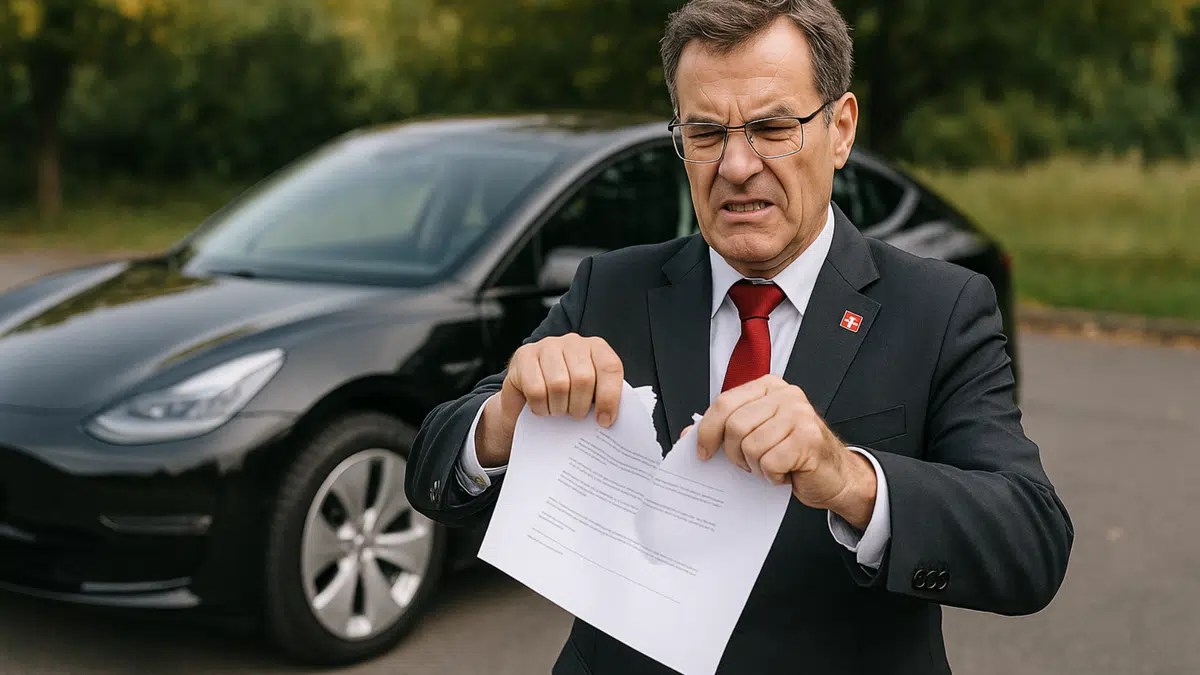An official report demonstrating the environmental advantages of electric vehicles has been suppressed by the Swiss Federal Office of Energy, exposing a troubling level of self-censorship in Switzerland regarding climate-related matters.
Research Considered Embarrassing for Authorities?
In 2022, the Swiss Federal Office of Energy (SFOE) tasked the well-known consultancy Infras with conducting an extensive study to address a pivotal question: Under what conditions is it environmentally justified to replace a combustion engine vehicle with an electric car? This question, far from trivial, was part of an ongoing debate shaped by the perception that producing an electric vehicle might cause an environmental impact comparable to, or even exceeding, that of a traditional car.
The study, which cost 100,000 Swiss francs—approximately 106,000 euros of public funds—aimed to inform consumers about the authentic environmental benefits of switching to electric vehicles, within the framework of Switzerland’s ambitious goals: 50% of new cars on the market should be electric by 2025.
When the Infras study’s conclusions were released in autumn 2024, they were clear and straightforward: in over 90% of cases, promptly replacing a combustion vehicle with an equivalently sized electric model results in a net reduction of CO₂ emissions. The only exceptions were vehicles that were scarcely used.
These findings perfectly align with existing scientific evidence. In Switzerland, an electric car produces about half the CO₂ emissions of a conventional vehicle over its entire lifecycle, largely due to Switzerland’s exceptionally clean electricity mix, of which 75% comes from renewable sources. According to the Paul Scherrer Institute, after just 30,000 kilometers, an electric vehicle already has a smaller environmental footprint compared to a similar combustion engine car.
Nevertheless, despite these positive findings supporting national energy policy, the SFOE made the unexpected choice not to release the report to the public. This withholding of information only came to light due to investigative efforts by the Swiss journalistic platform Republik and the WAV research collective, who secured the document through a formal transparency request.
Self-Censorship with Negative Democratic Impacts
An examination of the SFOE’s internal communications, obtained through a second freedom of information request, reveals the true motives for this censorship. The correspondence shows a fear of political and media backlash overriding public and scientific interest.
In December 2024, those overseeing the project referred to the report as potentially “sensitive.” They worried the recommendations could be “misinterpreted,” especially because the federal administration already faces negative views from segments of the public. More tellingly, they feared accusations from the populist right that the government was engaging in “re-education” by pursuing an energy policy considered too ambitious.
The SFOE’s communications director described the study as “merely academic,” claiming that in reality, no one would consider replacing their five-year-old vehicle “for climate reasons.” This stance starkly contradicts the core mission of the SFOE, which is to guide policy decisions to meet climate goals.
This situation raises critical questions about transparency in democracy. Several political figures have denounced this suppression, including Jürg Grossen, a Green-Liberal National Council member, who emphasized that since the study was funded by taxpayers, its findings must be accessible “to prevent opacity that undermines democracy.”
The decision to censor this report seems even more paradoxical given Switzerland’s struggle to meet its electrification objectives. Electric vehicles currently represent roughly 30% of new car sales, putting the country at risk of missing the 50% target by 2025. Yet, this suppressed study would have provided robust scientific evidence supporting electrification.
This self-censorship exemplifies the sensitivity surrounding the energy transition, frequently hampered by ideological conflicts rather than being guided by scientific facts that should inform public discussion. At a moment when Switzerland urgently needs to speed up its shift to electric mobility to fulfill its climate commitments, withholding such essential information calls into question the institutions’ capacity to fulfill their fundamental role of adequately informing the public.
